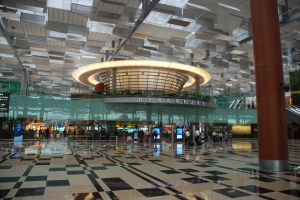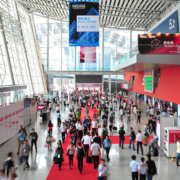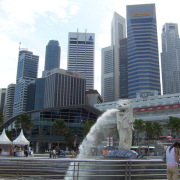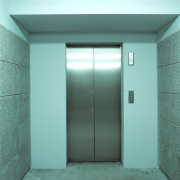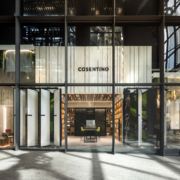Public Sector Construction Demand Expected To Increase in 2017
Changi Airport departure hall.
The Building and Construction Authority (BCA) projects the total construction demand or the value of construction contracts to be awarded this year to reach between $28.0 billion and $35.0 billion, higher than the preliminary estimate of $26.1 billion for last year.
The projected stronger construction demand is due to an anticipated increase in public sector construction demand from about $15.8 billion last year to between $20.0 billion and $24.0 billion this year. The public sector is expected to contribute about 70% of the total construction demand, boosted by an increase in demand for most building types and civil engineering works.
In view of the current slowdown in the property market and continued economic uncertainties, the private sector construction demand is likely to remain subdued and is projected to stay between $8.0 billion and $11.0 billion this year.
This year’s projects include:
- Residential projects: A steady pipeline of new public housing construction, upgrading works for HDB flats, and a number of upcoming sizeable condominium projects earmarked for developments on various Government Land Sales sites at Siglap Road, Martin Place and Anchorvale Lane;
- Commercial projects: Redevelopment projects such as Funan DigitaLife Mall at North Bridge Road, Golden Shoe Carpark at Market Street and CPF Building at Robinson Road;
- Industrial projects: HDB’s Defu Industrial City and JTC’s Logistics Hub @ Gul;
- Institutional and other building projects: More healthcare facilities such as the new National Cancer Centre at Outram and an Integrated Intermediate Care Hub at Jalan Tan Tock Seng as well as various educational facilities. A significant amount of private sector investments in tourist attractions and recreational facilities at Mandai Lake is expected to go ahead this year;
- Civil engineering projects: Mega public sector infrastructure projects which include various major contracts for the second phase of the Deep Tunnel Sewerage System (DTSS phase 2), North-South Corridor and Circle Line 6.
Last year, the total construction demand was slightly lower than forecasted mainly due to the re-scheduling of a few major public sector projects to this year, as longer preparation times are needed to implement these large-scale projects. Despite the slight shortfall from the forecast, total public sector construction demand last year was higher than the $13.3 billion in 2015, supported by the strong demand for civil engineering projects.
The total construction output or progress payments made for the work done has continued to remain high at $35.1 billion last year, a slight moderation from $36.4 billion in 2015. BCA expects the total construction output to moderate further to between $30.0 billion and $32.0 billion in 2017
Forecast for 2018 to 2021
The average construction demand is projected to be between $26.0 billion and $35.0 billion per annum in 2018 and 2019 and between $26.0 billion and $37.0 billion per annum in 2020 and 2021.
BCA estimates public sector construction demand to be between $18.0 billion to $23.0 billion per annum from 2018 to 2021, with similar proportions of demand coming from building projects and civil engineering works. Besides public housing developments and more healthcare and educational facilities, public sector demand over the medium term will be supported by various upcoming mega infrastructure projects such as the Jurong Regional Line, Cross Island Line, and various infrastructure developments for Changi Airport Terminal 5.
“Although the year-to-year fluctuations in the total value of annual construction demand are influenced by the lumpy nature of major infrastructure projects, the overall on-site construction activities or construction output is expected to stay at a relatively high level. The overall construction demand prospects over the medium term as well as the long term will continue to be bolstered by a strong pipeline of public sector construction projects. Companies that are prepared to change, innovate and transform to stay at the forefront of technological innovation, process re-engineering and productivity improvement are more likely to sustain their growth and competitiveness despite the headwinds under challenging economic conditions,” said Dr John Keung, CEO of BCA.

